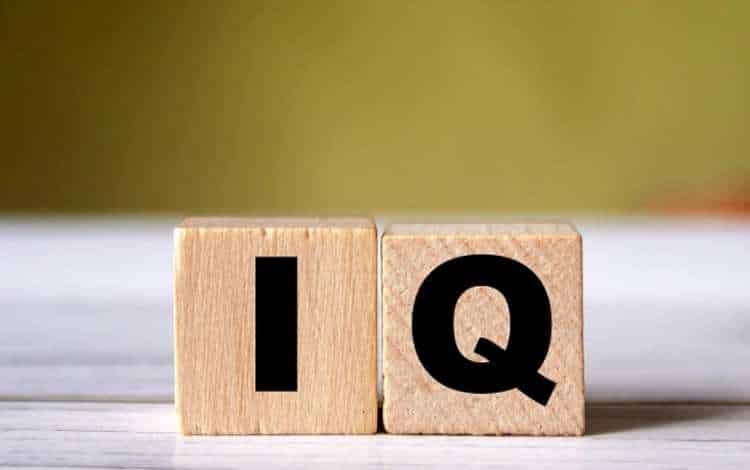
In the intricate landscape of cognitive psychology, the Intelligence Quotient, or IQ test, stands as a cornerstone in measuring mental acuity.
Initially conceived in the early 20th century, the IQ test endeavors to quantify human intelligence through a series of problems testing mathematical, spatial, linguistic, and logical skills.
While grounded in the robust tradition of psychological assessment, it carries with it a tapestry of evolutions, each iteration aiming to offer a more rounded view of a person’s intellectual capabilities.
Browse our online courses on meditation, positive thinking, overcoming procrastination, confidence, and freedom from distractions.
Designed to categorize individuals based on their cognitive capabilities relative to the broader population, IQ tests yield a score that is seen as a numerical representation of intelligence, with the global average set at 100.
Despite its widespread adoption and utility in educational and professional settings, the IQ test walks hand in hand with a series of criticisms, primarily concerning its perceived cultural bias and inability to fully encapsulate the multiplicity of human intelligence.
Today, as we delve deeper into the realms of cognitive understanding, the IQ test remains a vital tool, opening avenues for discussion on the intricacies and depths of the human mind.
Intelligence Quotient, popularly known as IQ, refers to a numerical score derived from standardized tests designed to measure human intelligence.
Originating from the early 20th century, these tests have undergone numerous evolutions to gauge the cognitive abilities of individuals. This article unravels the mysteries behind IQ tests, providing insights into their utility, validity, and implications on a societal level.
Historical Background: The Genesis of IQ Tests
The foundations of IQ testing can be traced back to the early 1900s, initiated by the French psychologist Alfred Binet. Binet’s initial objective was to identify students who needed special assistance in their educational journey.
Over the years, the concept of IQ evolved, witnessing the integration of several theories and constructs, including Spearman’s theory of general intelligence and Gardner’s theory of multiple intelligences.
Mechanics of IQ Testing: The Underlying Principles
IQ tests are grounded on a variety of principles, including spatial reasoning, mathematical understanding, verbal skills, and memory retention.
Generally structured to have a mean score of 100, IQ tests categorize individuals based on their cognitive abilities, comparing them to a large population. Scores are generally distributed in a pattern known as the bell curve or Gaussian distribution, where the majority of people score near the average, and a small percentage attain extremely high or low scores.
Utility and Relevance: Why Undergo IQ Testing?
IQ tests serve multiple purposes, including educational placement, assessment of intellectual disability, and even employee recruitment in certain corporate sectors.
It helps in identifying the strengths and weaknesses of an individual, paving the way for targeted educational strategies and career guidance.
Furthermore, it can offer a personal understanding and realization of one’s cognitive abilities, thereby helping in setting realistic goals and expectations.
Controversies and Criticisms: The Flip Side of the Coin
Despite their widespread use, IQ tests have been met with a substantial amount of criticism. Critics argue that these tests are culturally biased, unable to measure creativity or emotional intelligence, and often perpetuate social inequalities.
Moreover, there is an ongoing debate about the nature vs. nurture aspect of intelligence, with studies showing that environmental factors, such as socio-economic status, can significantly influence IQ scores.
Future Prospects: Innovations in IQ Testing
Looking ahead, the field of IQ testing is ripe for innovation. Advances in neuroscience and psychology suggest that future IQ tests could be more comprehensive, considering a broader spectrum of human intelligence, including emotional and creative intelligence.
Furthermore, with the advent of artificial intelligence, there is a promising pathway for the development of sophisticated tools that can tailor IQ tests to individual needs, offering a more nuanced understanding of human intelligence.
Navigating the Landscape of IQ Testing in the United States
The relevance of IQ tests in the USA today is multifold. It remains a common tool in educational settings to help tailor educational pathways suited to individual intellectual strengths.
Furthermore, in the corporate world, several firms integrate IQ tests as part of their recruitment process to gauge the analytical and problem-solving abilities of potential employees.
Despite its deep-seated presence, IQ testing in the USA is not without its critics. Concerns have been raised regarding the cultural bias inherent in these tests, potentially sidelining individuals from non-dominant backgrounds.
Moreover, the over-reliance on a numerical score as a representative of a person’s capabilities has often been brought to question, sparking a national conversation on the role and validity of IQ tests in a diverse society.
As we look toward the future, the landscape of IQ testing in the United States, such as The IQ Test is heading towards a more inclusive and holistic approach.
The modern dynamics involve a conscious effort to mitigate biases and to broaden the spectrum to include a wider array of cognitive abilities, including emotional and creative intelligence.
Conclusion: IQ Tests in the Modern Landscape
As we stand in the contemporary landscape, IQ tests remain a valuable tool in understanding cognitive abilities, albeit with recognized limitations.
It is incumbent upon educators, psychologists, and policymakers to utilize IQ testing judiciously, be cognizant of its boundaries, and work towards a more inclusive and holistic approach to measuring intelligence.
Engaging with IQ testing is a journey into the fascinating world of human cognition. While it opens doors to immense possibilities, it necessitates a careful and thoughtful approach to ensure that it serves as a tool for empowerment rather than discrimination.
As society moves forward, the continuous evolution and refinement of IQ tests stand as a testament to the ever-evolving understanding of human intelligence.

